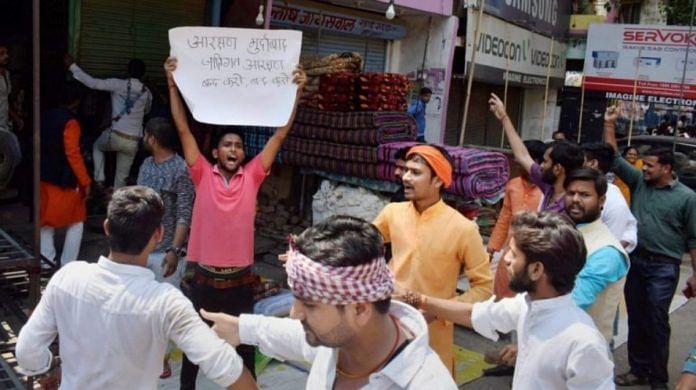Second year into my journalism degree, a guest lecturer walks into the class and asks us to introduce ourselves. I say my first name out of habit, and they instantly reply, “You need to mention your full name when you introduce yourself”. I was confused as to why I have to say my full name.
Years later, I came across readings and pop culture portrayals that reflected the relevance of surnames in Indian society. India, with all its diversity, unity, equality, and fraternity penned down in the longest handwritten Constitution, found a small element within our names to revive decades of discrimination. They clipped on titles as a tail to our names to help others form a mental image of where we hail from, what we do, what our ancestors have done, and, of course, the tier we belong to in the structured caste system of the country.
For a long time, I was in the bubble of oblivion because I did most of my studies abroad. So other than the label of being an expat’s child, I was not reminded of the caste status I hold. And so, the visible confusion when I was asked to give out my full name. Now while this activity was probably based on harmless intentions, it resonates with the obsession several Indians have with knowing full names. This need is so great that their subconscious starts to identify people solely on the basis of their surnames to make branding them easier.
Back in my hometown, an entire lane is named after a ‘lower’ caste title because among the 50 houses in that lane, one belongs to an individual from that caste.The person currently residing in that home is a reputed and highly educated SBI employee, who still happens to be identified by his lineage. Not a single soul from the other 49 homes recall this neighbour’s first name because they already call him by his surname that acts as a reminder of his roots.
A similar story was showcased in the 2021Tamil political satire Mandela. Throughout the movie, the protagonist is called names that are associated with his looks, the odd jobs he does and caste slurs. Adjectives like “bushy hair”, “dung picker”, “rice sack”, “illicha vaayan” were spewed so that the unspoken authority within the caste system remains unthreatened. It exposed the conscious choice of the upper castes to deprive others of a dignified identity through their name.
History of oppression
This caste structure was considered standard until several movements and revolutions challenged it in India. People cut off their surnames and stuck to a general name that carried no indication regarding their caste or background. The Swayam Maryada movement and its consequent impact across South India were felt strongly but little did Periyar know that this very idea would, later on, be used as a weapon for divisive politics. Even otherwise, marginalised sections defying the caste hegemony by getting rid of surnames and titles are subjected to a brutal system. The movie Karnan, by Mari Selvaraj, reflects on this heavily. The director conveys the years of oppression through the simple question, “What is your name?” Many of the characters in the movie have single names inspired by characters from Hindu mythology, which is looked down upon by law enforcers who ask, “How can the son of Maaduswamy be named Duryodhana?”.
American scholar Ralph Ellison once said, “It is through our names that we first place ourselves in the world.” Most Indian names don’t just place us in the world, but also in a hierarchy that was built and fuelled by archaic times. As Dr BR Ambedkar wrote, caste operates deep within the unconscious mind. Despite striving to create inclusive systems, we still use names as markers to identify the community someone belongs to. Surnames are repetitively fed to our subconscious to keep the silent apartheid of caste in India alive.
The next time someone wants to know my full name, maybe I will have it in me to ask “Why? What’s in a name?”
The author is a student at University of Madras, Chennai




